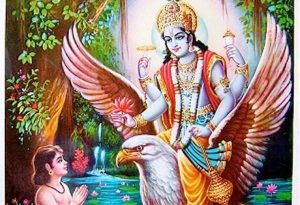 The Power of Devotion can change Your Yoga Practice and Life: Bhakti Yoga
The Power of Devotion can change Your Yoga Practice and Life: Bhakti Yoga
Meaning of Bhakti
 The term bhakti, derived from the root bhaj (to share), means ‘devotion, love’ and bhakti –yoga is the ‘yoga of total dedication to the Divine’. Sandilya, the author of the Bhakti –Sutra, defines bhakti as ‘supreme attachment to the Lord’. He considers the attainment of ecstasy as secondary phenomenon. According to the Bhagavata – Purana, Bhakti yoga is compounded of the following stages:
The term bhakti, derived from the root bhaj (to share), means ‘devotion, love’ and bhakti –yoga is the ‘yoga of total dedication to the Divine’. Sandilya, the author of the Bhakti –Sutra, defines bhakti as ‘supreme attachment to the Lord’. He considers the attainment of ecstasy as secondary phenomenon. According to the Bhagavata – Purana, Bhakti yoga is compounded of the following stages:

Types of Bhakti
(1) sravana – listening to the names of the Divine
(2) kirtana – chanting, praise songs in honour of God
(3) smarana – meditation on God
(4) pada –sevana – ‘service at the feet’ of the Lord
(5) arcana – ‘ritual devotion’
(6) vandana –‘prostration’ before the image of the Lord
(7) dasya – ‘slavish devotion’ to God
(8) sakhya – ‘friendship’- the divine raises the humble devotee to the status of a friend
(9) atma – nivedana – ‘self –offering’ through which the worshipper enters into the immortal body of God.
The devotes feels a growing passion for God, and this helps him to break down one barrier after another between the Divine and himself. This increasing love culminates in the vision of the cosmos penetrated and saturated by the transcendent Reality. When the Divine and the devotee coalesce into the One, this is the supreme love or para-bhakti. Narada, in his Sutra, distinguishes between a primary and a secondary type of devotion. The latter is tinged by persona motives and ulterior objectives. This can be of three different kinds again, according to the predominance of one of three gunas (sattva, rajas or tamas). Primary devotion is unselfish total surrender to God.
Bhakti is traditionally regarded as the easiest way to emancipation. Loving devotion to the Lord bears fruit easily when it is constant and purposeless. Even Sankara, the intransigent to liberation. The true bhakta or devotee ‘sees nothing but love, hears only about love, and speaks only of love and thinks of love alone’ (Naarda’s Bhakti-Sutra). Bhakti yoga has been called a dualistic doctrine par excellence, but this is not true for all schools of this yoga. Though at the outset all devotes are searching for ‘the other’, yet the final goal of some traditions is to merge so completely with the Divine that there is complete forgetfulness of one’s own being: the Lord becomes the only reality.
